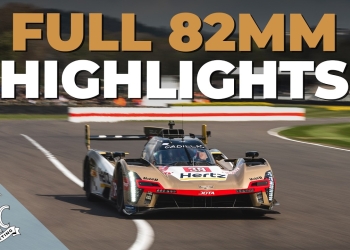Farewell to Automotive Icons: Cars Being Discontinued in 2024
The automotive industry continues its relentless evolution, and 2024 marks the end of production for several notable vehicles. From legendary supercars to beloved performance models, this year's discontinuations represent significant shifts in manufacturer portfolios and changing market demands.
Premium Performance Departures
Audi R8
The Audi R8, one of the most celebrated mid-engine supercars, ends its impressive run. Known for its:
- Naturally aspirated V10 engine
- Exceptional handling dynamics
- Daily driver usability
- Motorsport heritage
Ferrari Portofino M
Ferrari's entry-level convertible, the Portofino M, exits the lineup, marking the end of an era for the Italian manufacturer's front-engine GT segment.
Performance Hatchback Farewells
Hyundai's N-Division sees two significant departures:
-
Hyundai i20N
- Hot hatch segment competitor
- Performance-focused variant
-
Hyundai i30N
- First N-performance model
- Track-ready capabilities
Jaguar's Triple Exit
The British luxury manufacturer marks a significant transition with three models ending production:
| Model | Segment | Notable Features |
|---|---|---|
| XE | Compact Executive | Sports sedan dynamics |
| XF | Executive | Premium luxury features |
| F-Type | Sports Car | V8 power options |
The F-Type's departure is particularly poignant as it represents the end of Jaguar's pure combustion sports car era.
Lexus Performance Icons
Two distinctive Lexus models conclude their run:
-
LC500
- Flagship grand tourer
- Naturally aspirated V8
- Unique design language
-
RC F
- Performance coupe
- Track-focused capabilities
Mercedes-Benz Portfolio Restructuring
The German luxury brand discontinues several notable models:
- C-Class Coupe
- E-Class Coupe
- CLS
Mercedes-Benz's departure from these segments reflects the industry's shift toward SUV-focused lineups and electrification strategies.
Final Farewell
Mini Clubman
The Mini Clubman concludes its journey, marking the end of Mini's unique wagon-style offering with its characteristic split rear doors.
Click here to preview your posts with PRO themes ››
These discontinuations reflect broader industry trends toward:
- Electrification
- SUV market dominance
- Streamlined model lineups
- Changed consumer preferences
The departure of these models, particularly performance-oriented vehicles like the R8 and F-Type, signals a transformative period in automotive history as manufacturers pivot toward new technologies and market demands.









